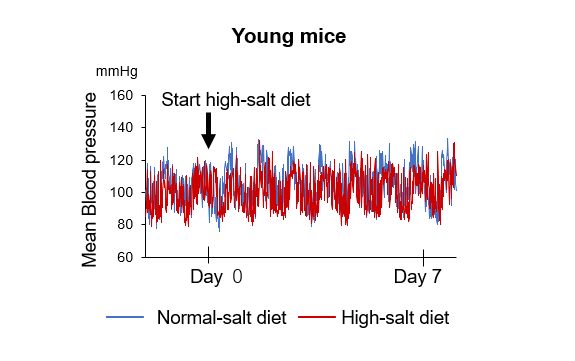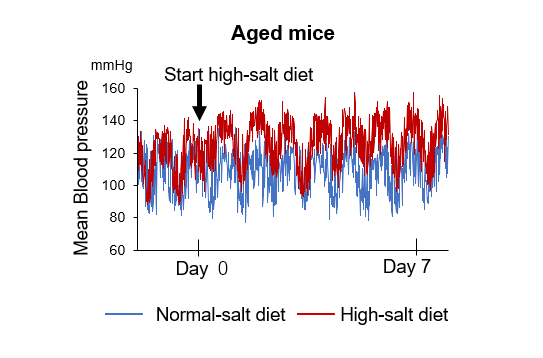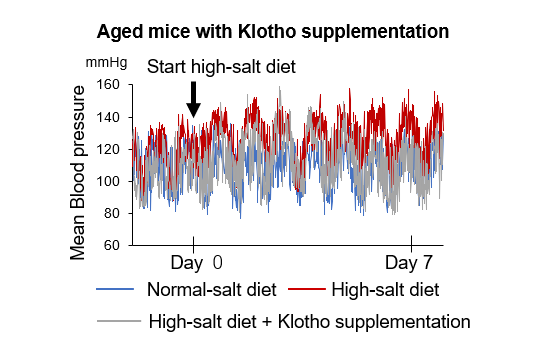- HOME
- Research
- Researcher's Profile
- Wakako KAWARAZAKI
Researcher's Profile

- Project Associate Professor
- Wakako KAWARAZAKI
- Genome Science & Medicine
- wkawarazaki-tky
 umin.ac.jp
umin.ac.jp
Biography
| March 2001 | School of Medicine, Niigata University |
|---|---|
| May 2001 | Intern, Okinawa Chubu Hospital |
| May 2004 | Staff, Okinawa Miyako Hospital |
| April 2005 | Resident, Department of Surgery, Kidney Center, Tokyo Women’s Medical University |
| August 2005 | Staff, Division of Nephrology and Endocrinology, The University of Tokyo Hospital |
| October 2005 | Resident, Department of Nephrology, Tokyo Medical University Hachioji Medical Center |
| May 2006 | Staff, Division of Nephrology and Endocrinology, The University of Tokyo Hospital |
| March 2011 | Medical Doctors Graduate, Graduate School of Medicine, The University of Tokyo (UTokyo) |
| April 2011 | Staff, Division of Nephrology and Endocrinology, The University of Tokyo Hospital |
| April 2012 | Project Researcher, RCAST, UTokyo |
| April 2018 | Project Research Associate, RCAST, UTokyo |
| March 2021 | Project Associate Professor, RCAST, UTokyo (-July 2022) |
Research Interests
In our laboratory, we focus on the pathogenesis of hypertension and chronic kidney disease (CKD), which are deeply affected by lifestyle, and conduct research on the following three main themes.
1) Elucidation of the pathogenesis of hypertension and CKD, which are aggravated by environmental factors such as salt intake, obesity, and aging, and development of preventive and therapeutic methods.
2) Elucidation of the mechanism of diabetic nephropathy and development of new diagnostic and therapeutic methods
3) Elucidation of the mechanism of blood pressure (BP) and electrolyte homeostasis by the kidney.
The salt reabsorption mechanism in the kidneys was particularly important for vertebrates to survive on dry land, but nowadays, excessive salt intake causes hypertension and kidney disease. Hypertension is caused by a genetic predisposition as well as environmental factors such as stress, obesity, and aging, and salt intake is deeply involved. There are two types of people: salt-sensitive and salt-insensitive. Hypertension caused by salt intake is called salt-sensitive hypertension.
The sympathetic nervous system and the renin-angiotensin-aldosterone system (RAAS), which is a cascade of hypertensive hormones, are involved in BP regulation in cooperation with the kidneys. Originally, the RAAS is suppressed by salt intake, but in salt-sensitive individuals, the sympathetic nervous system and RAAS are inappropriately increased, resulting in elevated BP and renal damage.
For example, aldosterone, a hormone that promotes sodium reabsorption in the kidney, is normally suppressed during high salt intake. However, when aldosterone is not suppressed due to some abnormality, it causes damage in the heart and kidneys via activation of its receptor, the mineralocorticoid receptor (MR), during salt intake. Furthermore, we have found that even if plasma aldosterone levels are suppressed during salt intake in salt-sensitive individuals, hypertension and renal damage occur due to activation of the Rac1 protein in the kidney, which activates the MR. In addition, during obesity, adipocytes secrete aldosterone-releasing factor, and aldosterone secretion, which is normally suppressed during salt intake, continues unabated, resulting in increased BP and renal damage. In addition, in aging, a decrease in the anti-aging factor Klotho in the blood causes an increase in vasoconstriction via activation of the Wnt5a-RhoA system in vasculatures during high salt intake, resulting in hypertension. Thus, excessive salt intake disrupts the homeostasis of the body and causes the development of diseases. Through our research, we are trying to communicate the importance of salt reduction, to prevent hypertension and renal diseases, and to develop new treatment methods. We are also working on the analysis of age-related diseases for the aging society.

- fig.1 Blood pressure measurement by telemetry in young mice

- fig.2 Effect of high-salt diet on blood pressure in aged mice

- fig.3 Klotho supplementation attenuates salt-sensitive hypertension in aged mice
Award
- March 2010 Young Investigator Award in International Symposium on Aldosterone and Related Substances in Hypertension
- May 2010 First Prize of Young Investigator Award in 3rd International Aldosterone Forum
- November 2011 High Blood Pressure council Japanese Young Investigator Travel Awards
- June 2012 Best Presentation Award at the Annual Meeting of the Japanese Society of Nephrology
- May 2012 Young Investigator Award in 5th International Aldosterone Forum
- May 2012 Incentive Award, Society for the Study of Hypertension and Renal Disease
- November 2018 Japanese Society of Hypertension, Female Researcher Encouragement Award
- June 2019 Best Presentation Award at the Annual Meeting of the Japanese Society of Nephrology
- November 2019 Japanese Society of Hypertension, Splendid basic Hypertension Research Award
Keywords
Hypertension, Chronic kidney disease, Salt-sensitivity, Ageing

